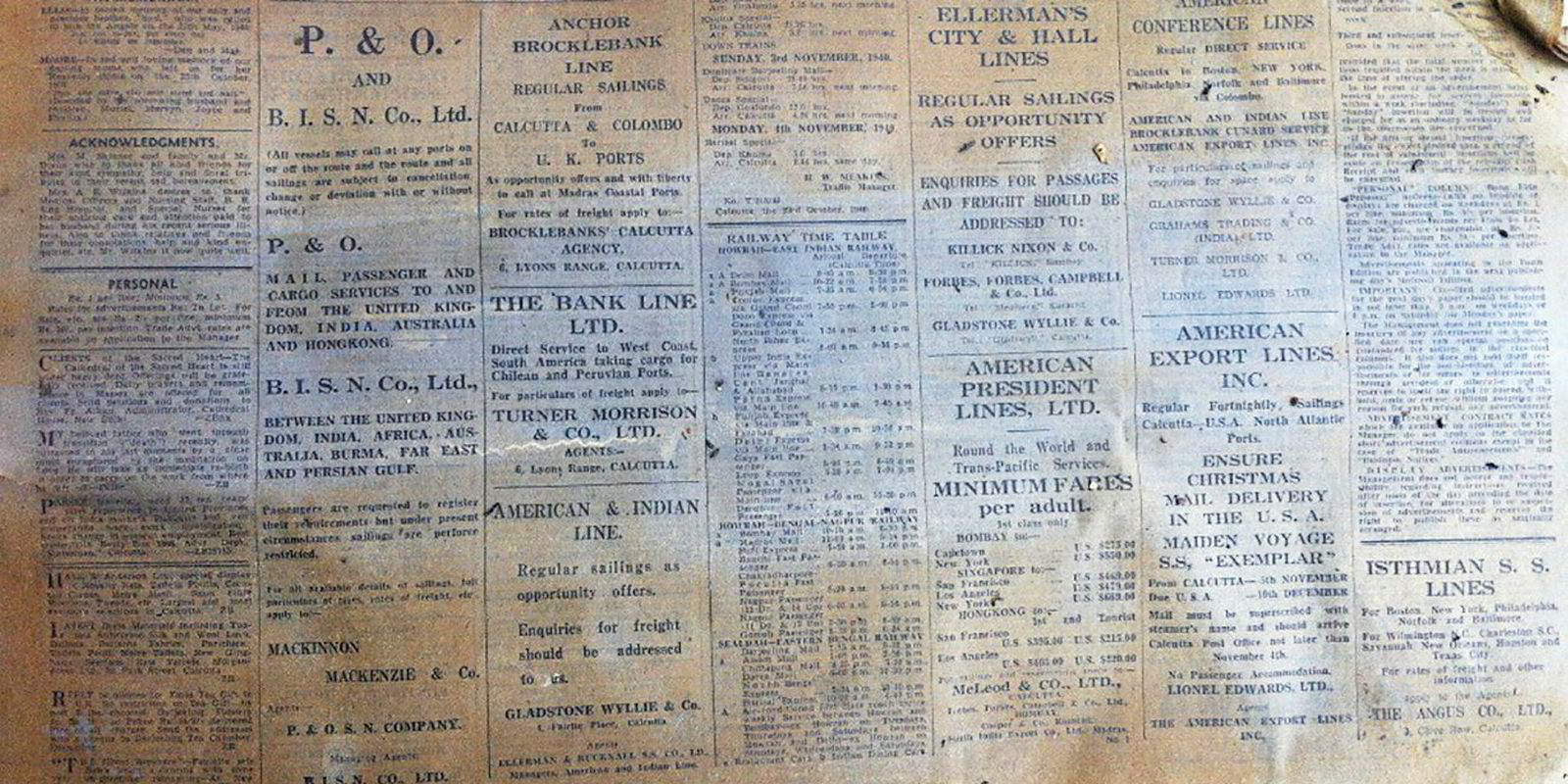The 770 letters from the Gairsoppa reveal the writers’ fears and dreams as war raged in 1940.
With Britain alone in Europe fighting Hitler under aerial bombardment, many letters referred to the humdrum of life in British-ruled India compared with conditions back home.
A letter to Kewman Melville in Edinburgh read: “The news from home is too dreadful and out here… it is difficult to realise the existing horrors in other parts of the world.”
Another writer told the Reverend HC Barlow in Devon, southwest England: “It feels all wrong to be in peace and safety when our friends are going through hell.”
An engineer in Calcutta, writing about his two-month sea journey from Liverpool, said: “No doubt you will have been wondering if we are in India yet, or at the bottom of the sea.” And Patricia Anderson recalled of her journey: “We had a raider on our tail for several nights, and had to zig-zag the whole time.”

The war had yet to engulf Asia, but British forces were involved in bitter fighting with tribes on India’s North-West Frontier in a conflict that few now remember. Bill Wheeler of the Devonshire Regiment wrote of losing men to dum-dum bullets, “so we are having as bad a time as them poor devils in France”.
It was not all gloom and doom. Many writers mention playing golf, including a Scot who had arrived in Bombay to work for Lloyd’s Register, while others talk of riding, films and parties.
On holiday from teaching, Peg wrote about waterskiing while staying on a lake in Kashmir, while Dot Matheson’s letter to her mother described how she “had the most enormous and marvellous lunch and very nearly bought me a fur coat” — a cheap duty-free import from Russia.
In a more romantic vein, one woman on a south Indian estate described falling in love with a married officer on the ship she sailed on. “I don’t see how I can exist the rest of my life without him.”
Joe Moolem sent his wife in San Francisco an advertisement clipped from a newspaper, asking her if he should apply, or whether she still loved him. It read: “Wanted: husbands for five young and pretty sisters aged 16 to 24. One is daring. One is alluring. One is coy. One is wild. One is wise. You can have your pick. PS: Can’t afford any dowry. Their youth and beauty will compensate you for it.”



